Emotional, Psychological and Spiritual Care
Learning that your child has cancer brings many challenges for the whole family. Our team supports your child’s and family’s needs all along the way. When your child starts treatment, your social worker will meet with you to ask how your family is coping and to suggest services that might help.
We offer:
- Therapeutic art, music and play activities
- Learning support
- Individual and group therapy
- Spiritual care to families of all faiths and cultures
We base these psychosocial services on research about what works to support the emotional, behavioral health and spiritual needs of cancer patients and their families.
We serve babies through young adults and their families. If your family’s main language is not English, we have interpreters in many languages, including sign language, to help you get the care your family needs.
-
Social work
Your child’s care team will include a social worker specially trained to help children, teens and their parents deal with serious illness. Your social worker will meet with you at the start of your child’s treatment, and you can contact them whenever needed.
Our social workers help throughout your child’s care. We provide support and information about your child’s illness and the impact it may have on your family. We coordinate referrals to other services and can help you connect with other families.
Our team helps you find resources and services to meet your needs at Seattle Children’s, in the community and through national programs.
To contact your social worker, call 206-987-2760 or ask your child’s healthcare team to connect you. Learn more about Social Work at Seattle Children’s.
-
Child life
Child life specialists focus on your child’s coping and developmental needs as they deal with their illness and treatment.
Child life specialists explain your child’s illness and treatment in ways they can understand. We can also help you talk with your other children about their sibling’s illness and treatment.
We teach your child how to take part in treatment and help them feel more in control when taking medicine, having procedures (like surgery, injections, infusions and feeding tubes). We can help them deal with a long hospital stay.
Read more:
- Child life specialists at Seattle Children’s
For these services, ask your child’s healthcare team to connect you to a child life specialist.
-
Play specialists
Play is a key part of children’s development, even when they are sick or in the hospital for a long time. Our play specialists support kids, especially young children, in doing the important work of play. We have playrooms for children staying in the hospital or visiting a clinic.
To contact a play specialist, call 206-987-4433 or ask your child’s doctor to connect you.
-
School Services
Our teachers help your child meet their education goals during and after cancer treatment. We tutor and provide group school (when it is safe to do so). We help plan for your child’s return to school, such as services you may need.
To get learning support for your child during their cancer treatment, ask your child’s healthcare team to connect you to School Services. Read more about School Services at Seattle Children’s.
-
Creative arts therapy
Art, music and other forms of expression can help your child explore their creativity, thoughts and emotions while learning important coping and motor skills. We offer these services to patients and their siblings and caregivers through our Child Life Services.
The A Club is an arts and crafts drop-in group for children age 6 and older who are being treated in our hospital’s Cancer Care Unit. Siblings are welcome. Free sessions are held on Zoom. Call 206-987-2678 to register.
We offer art therapy groups via Zoom to give family members a space for expression, social engagement and therapeutic support. Call 206-987-6724 to register or find out more about these free groups:
- Ink About It for siblings of cancer patients treated at Seattle Children's. Ages 8 to 12.
- Dessert and Draw for teen siblings.
- The Artist’s Way for patients, siblings and caregivers. Ages 14 and older.
- Art and Heart for grade school and middle school patients and siblings. Ages 6 and older.
Learn more:
-
Gaming therapy
Therapeutic gaming specialists use video games, board games and extended role-play games to support your child during difficult medical treatments. Facilitated group games are a way for kids to have fun gaming and to interact socially.
We also use virtual reality technology to help your child cope with distressing or painful medical procedures.
Our gaming specialists are part of Child Life Services. Call 206-987-2450 to learn more.
-
Spiritual care
Chaplains at Seattle Children’s provide respectful spiritual care and emotional support to your child and family. We serve all faith traditions and cultures.
Our staff and on-call chaplains include both English and Spanish speakers. For families who speak other languages, we provide pastoral and spiritual support with the help of interpreters.
We offer confidential care and support 24 hours a day during times of illness, injury, crisis or loss. You are welcome to visit the hospital’s chapel and meditation room at any time, day or night, to pray, reflect or meditate.
To contact us, call 206-987-4326. After business hours, call 206-987-2000 and ask to speak with the on-call chaplain. Learn more.
-
Behavioral health support
Our team helps your child and family deal with feelings or behaviors that may arise or get worse because of your child’s illness or treatment. If needed, your child’s care team will include a pediatric psychologist or mental health therapist.
We can work one-on-one with you or your child to:
- Provide behavioral health treatment
- Teach coping skills
- Offer practical guidance
Our therapy groups provide a way for children, teens and young adults to give and receive support from others their own age. Groups are a safe place to learn coping and practical skills. People who have cancer or a brain tumor are welcome, whether you were treated at Seattle Children’s or elsewhere.
We offer 3 groups via Zoom:
- Middle School Life (After Cancer) group for middle school students who have finished treatment. You will learn and practice skills that will help with issues that may come up after cancer treatment ends. The group meets for 6 to 8 one-hour sessions. A parent group meets at the same time in a different Zoom room.
- High School Cancer Group for current high school students who are in treatment or have finished treatment — no matter how long ago. Sessions are held for 8 weeks in the fall and in the spring.
- AYA Cancer Group for people 18 years and older who are in treatment or have been treated in the past. Sessions are held for 8 weeks in the fall and in the spring.
To attend a group, ask one of your healthcare providers to refer you to the group you would like to join. To receive one-on-one therapy with a psychologist or mental health therapist, ask one of your healthcare providers to refer you.
-
Neuropsychology
Neuropsychologists are licensed psychologists who focus on the relationship between the brain, learning and behavior. Your child might have a consultation or assessment to better understand how their cancer or brain tumor affects their brain development.
Read more about Neuropsychology, including how to schedule an appointment.
-
Palliative care
Any child who has a serious, possibly life-threatening illness may benefit from working with our Palliative Care team. Psychosocial providers on the team can help ease the stress of a serious illness and enhance your child’s quality of life through emotional support and better communication.
Because each family is unique, we:
- Help your family talk about your child’s illness with each other and with your healthcare team
- Make sure the goals of your child and family stay at the center of all our discussions
- Help you make treatment choices that are right for you and your child
- Give your family extra emotional support during a tough time
Ask your child’s care team to refer you to our program. After your provider refers you, a member of our team will arrange to meet with you and your family. If you have any questions or would like to learn more, please call 206-987-7459.
Read more:
- Palliative Care at Seattle Children’s
-
Bereavement support
Our Journey Program is for any family who has experienced the death of a child. We help families cope with death, loss and grieving. Our services include support groups, counseling and referrals to other resources.
Call 206-987-2062 to contact us. Read about our bereavement program for child loss.
-
Research to support well-being and quality of life
Our Survivorship and Outcomes research program aims to improve the overall quality of life for patients with cancer and their families, starting on the day of diagnosis and extending even after treatment ends. We study a range of topics, such as:
- Boosting resilience and mental health during and after cancer treatment
- Understanding and better addressing cancer symptoms
- Helping to keep social relationships during cancer treatment
- Creating and sharing digital health programs
- Supporting how patients and their families communicate
Teams
Joanna Thome Patten, PsyD, is clinical director of Cancer Care Psychosocial Services.
Our team works closely with specialists from Seattle Children’s:
Child life specialists
-
Riley Banta, MS, CCLS, Blood and Marrow Transplant
-
Morgan Braun, MS, CCLS, Outpatient Clinic/Infusion Center
-
Samantha Collar, MS, CCLS, Infusion Center
-
Riley Coyle, MS, CCLS, Outpatient Bone Tumor Clinic; Patient Sibling Support Specialist; Cancer Predisposition Clinic
-
Dee Curtin, MS, CCLS, Inpatient Leukemia/Lymphoma
-
Chloe Reichert, MS, CCLS, Inpatient Solid Tumor/Hematology
-
Alicia Sevilla, MS, CCLS, Outpatient Clinic
-
Brooke Wolford, MS, CCLS, Outpatient Clinic/Infusion Center (Includes Saturdays)
Social service specialists
-
Katie Ikezawa, Cancer and Blood Disorders Center
-
Zach Reinke, Immunotherapy
Creative arts, play and therapeutic gaming staff
-
Cecelia Bartosiewicz, Music Therapist
-
Laura Chamberlin, MA, ATR-BC, NCC, Art Therapist/Instructor
-
Forest Coyle, Therapeutic Gaming and Digital Tech Specialist
-
Isatou Daffeh, Play Specialist, Outpatient Clinic; Infusion Center; Inpatient High Risk Leukemia
-
Mike Cardenas Willen, MPS, LMHCA, AT, Art Therapist/Instructor
Psychologists and mental health therapists
-
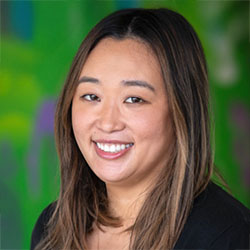
Stella Cha Fausto, LICSW
-
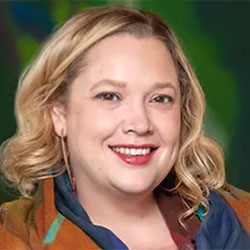
Gretchen Ione Fry VonHeeder-Phillips, LICSW
Telemedicine at Seattle Children’s
You may be offered a telehealth (virtual) appointment. Learn more.
Paying for Care
Learn about paying for care at Seattle Children’s, such as coverage, billing and financial assistance.
For Healthcare Professionals
We base our psychosocial services on the Standards for Psychosocial Care for Children With Cancer and Their Families. Read how to refer a patient.
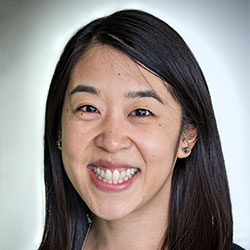
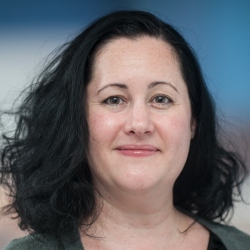
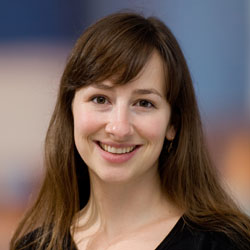
Social workers
Elizabeth Estes, LSWAIC, Brain Tumor Team
Sarah Foster, LICSW, Bone Marrow Transplant Team
Wade Iwata, LICSW, Supervisor, Brain Tumor Team
Tara Pauw, LICSW, Solid Tumor Team
Alan Pugh, LICSW, Solid Tumor Team
Kenia Ramirez Hernandez, LICSW, Leukemia and Lymphoma Team
Fred Wilkinson, LICSW, Leukemia and Lymphoma Team
Back to Top